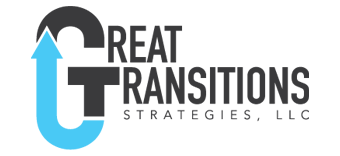I think I heard you say “No one”.
Many supervisors and those being evaluated regularly vocalize their negative sentiments toward the process. Both see it as a stressful time, with potentially a lot riding on it such as promotions or bonuses.
This is a topic that pops up around midyear. Just in time for graduation season.
Think about evaluations when you are in school. At all levels of education, you are in a mode of constant evaluations. Each course has different methods to evaluate; tests, quizzes, papers, presentations, and group projects to continually assess your progress.
Why?
To see if we are on track and measure progress throughout the term rather than waiting for the end of the semester. In most academic settings we can calculate our grades at any time. Why? Because it works and informs the student and instructor on performance.
If this works and is so tested over time, why do so many organizations rely on semi-annual or annual performance evaluations for our work? Ever been surprised by an evaluation. In my opinion that should never happen. We should always know where we stand and not have to wait until the final report card for our performance.
How does your organization handle performance evaluations? Annually, semi-annually, or more frequently? If you have long periods between evaluations, how can you make the evaluation process less stressful?
I have been working with a client frustrated with the performance evaluation system at her company. She has decided to take control of how she evaluates her direct reports and fit it into her semi-annual reporting system. Her goals are to reduce the stress, make evaluations a continuous process, and have her direct reports own more of the process.
Here is her implementation plan:
She is “flipping the script” on evaluations by making her direct reports responsible for:
- Writing the initial draft of the evaluation criteria
- Scheduling and leading regular evaluations of their own performance
The result she is after is a continuous and accurate evaluation of her direct reports performance that they own. Lastly, that performance is based on specific criteria created and agreed upon by her and the direct report.
Setting the criteria:
- The person being evaluated is responsible for facilitating a series of two or three meetings to establish the criteria they will be evaluated against.
- Criteria will be based on results not activities
- e. reducing error rates, reducing customer service calls, creating repeat business
- The direct report and supervisor must agree on the criteria
Leading the evaluation progress
- The direct report schedules regular meetings to evaluate their progress, two to four-week intervals is her starting point
- The person being evaluated leads the meetings
What are the expected outcomes?
She is expecting the process will create more of a partnership and an ongoing conversation about professional performance. Additionally, it will provide opportunities for her direct reports to own the process, ask for assistance, and build rapport and trust.
Evaluations will be less top-down and more of a collaborative objective process aimed at the growth of each individual. No surprises. Everyone knows how they stand at any time.
We are looking forward to see how this new process works out.
This is one leader’s approach.
What would be the impact on your organization if you could remove the angst associated with annual reviews? If you have a methodology that works, please share them with our community so we can learn from you.






